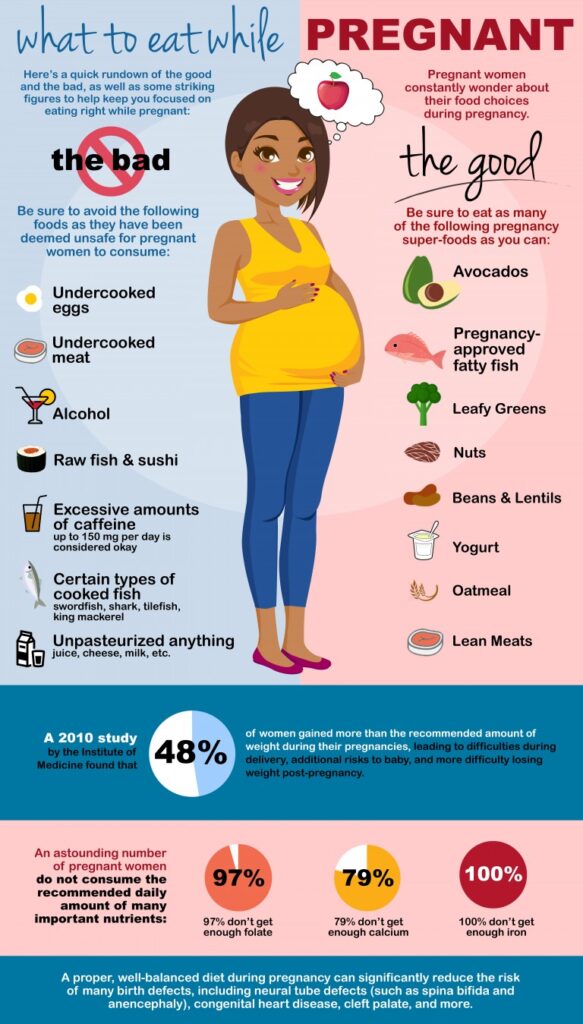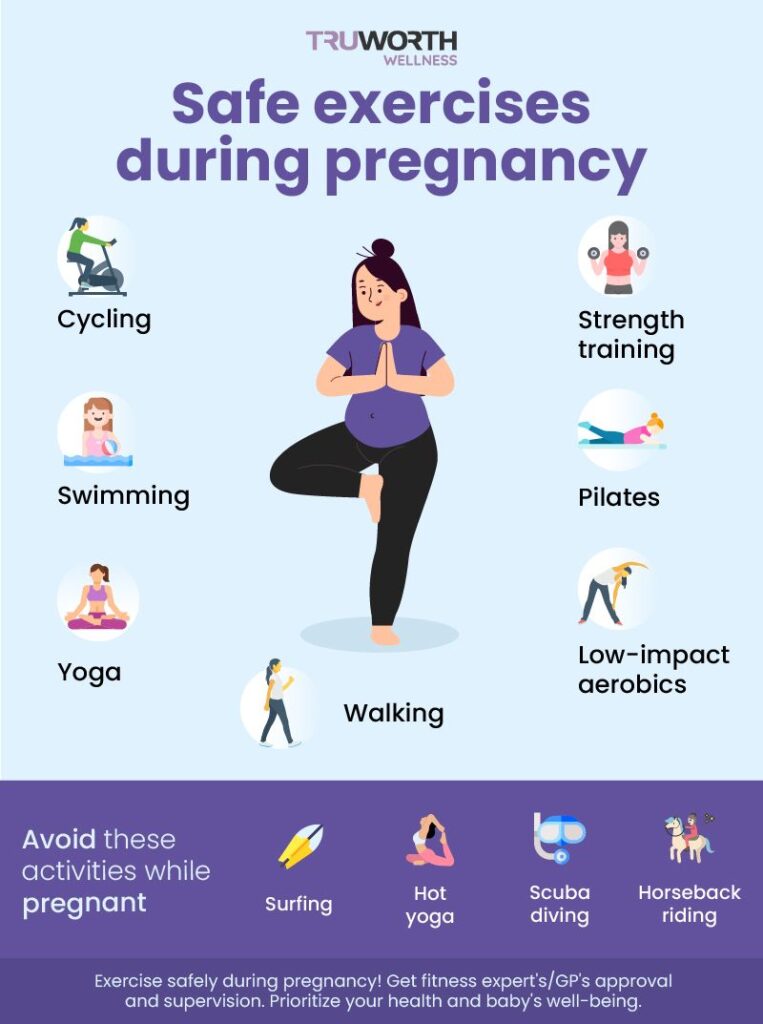Safe Pregnancy Practices
Pregnancy is an exciting journey, but knowing safe pregnancy practices is key to keeping you and your baby healthy. From what to eat (and avoid) to exercise and lifestyle choices, this guide will walk you through everything you need to know about safe pregnancy practices in Australia.
Nutrition: What to Eat & Avoid
Eating a balanced diet is essential during pregnancy, but some foods should be avoided due to the risk of infections or toxins that could harm your baby.
Safe Foods:
- Protein: Lean meats, fish low in mercury (like salmon and trout), eggs (fully cooked), legumes, and tofu.
- Dairy: Pasteurised milk, cheese, and yoghurt provide calcium essential for bone development.
- Fruits & Vegetables: Wash thoroughly to remove pesticides and bacteria.
- Whole Grains: Brown rice, oats, and whole wheat bread for sustained energy.
Foods to Avoid:
- Raw or undercooked meats, eggs, and seafood (risk of salmonella, listeria, or toxoplasmosis).
- Soft cheeses like brie, camembert, and blue cheese unless cooked thoroughly.
- Deli meats and pre-packaged salads due to the risk of listeria.
- High-mercury fish (shark, marlin, king mackerel, and swordfish) which can affect fetal development.
- Unpasteurised dairy products which can carry harmful bacteria.
Caffeine & Alcohol:
- Limit caffeine intake to 200mg per day (about one coffee or two teas) as high caffeine levels may increase the risk of miscarriage.
- Completely avoid alcohol as it can cause Fetal Alcohol Spectrum Disorder (FASD).
For a full guide on pregnancy nutrition, check out this resource from Health Direct.

Exercise During Pregnancy
Staying active during pregnancy can help improve your mood, reduce discomfort, and even prepare your body for labour.
Safe Exercises:
- Walking: Low impact and great for circulation.
- Prenatal Yoga & Pilates: Improves flexibility and relaxation.
- Swimming: Relieves pressure on joints and helps with swelling.
- Pelvic Floor Exercises: Strengthens muscles to support labour and recovery.

Exercises to Avoid:
- Contact sports (rugby, soccer, etc.).
- High-intensity workouts that raise your body temperature too much.
- Heavy weightlifting.
- Exercises that involve lying flat on your back after the first trimester (can reduce blood flow to the baby).
Always check with your doctor before starting any new exercise routine.
Managing Common Pregnancy Symptoms
Pregnancy comes with its fair share of discomforts. Here are some safe pregnancy practices to help ease common symptoms:
- Morning Sickness: Try eating small, frequent meals, ginger tea, and vitamin B6 supplements (consult your GP first!).
- Heartburn & Indigestion: Avoid spicy foods, eat slowly, and sleep with your head elevated.
- Back Pain: Wear supportive shoes, practice good posture, and consider prenatal massages.
- Swelling (Oedema): Keep your feet elevated, stay hydrated, and reduce sodium intake.
Sleep & Rest
Quality sleep is essential for both you and your baby. Pregnancy hormones, physical discomfort, and frequent trips to the bathroom can make sleeping difficult.
Tips for Better Sleep:
- Sleep on your left side to improve blood circulation.
- Use a pregnancy pillow for extra support.
- Reduce screen time before bed to help with melatonin production.
- Establish a relaxing bedtime routine (warm bath, reading, meditation).
Safe Medications & Supplements
Not all medications are safe during pregnancy. Always consult your healthcare provider before taking anything, including over-the-counter meds.
Essential Supplements:
- Folic Acid: Reduces the risk of neural tube defects.
- Iron: Prevents anaemia and supports baby’s development.
- Vitamin D & Calcium: Important for strong bones and teeth.
- Iodine: Supports brain development.
For a full list of safe medications, visit the Therapeutic Goods Administration (TGA).
Safe Pregnancy Practices at Work & Home
Your work and home environment should be as safe as possible during pregnancy.
Workplace Safety Tips:
- Take frequent breaks to sit and stretch.
- Avoid prolonged standing or heavy lifting.
- Reduce exposure to chemicals or strong fumes.
- Use ergonomic chairs and desk supports.
Home Safety Tips:
- Avoid cleaning with harsh chemicals (opt for natural cleaning products instead).
- Be cautious on stairs and uneven surfaces.
- Ask for help with lifting heavy objects.
When to See a Doctor
It’s important to be aware of any warning signs that require medical attention. Contact your doctor immediately if you experience:
- Severe nausea and vomiting that prevents eating or drinking.
- High fever (above 38°C).
- Bleeding or severe cramping.
- Sudden swelling in the hands, face, or feet.
- Blurred vision or persistent headaches.
- Reduced fetal movements (less than 10 movements in two hours after 28 weeks).
For expert maternity photography and capturing your journey, check out Aurora Joy Photography!
Leave a Reply
Emma Baker
Hi there! I'm Emm, a Romsey-based photographer capturing smiles and creating cherished memories. As a mum to Rori and Kody and partner to Josh, I love adventure—riding bikes, savoring coffee, and embracing life's journey. With a background in teaching, I found my true passion in photography over a decade ago. I founded Aurora Joy Photography to celebrate every client's unique journey with warmth and enthusiasm.
Emma Baker
September 27, 2025
SHARE TO:
Pinterest
Facebook
COMMENTS
+
-